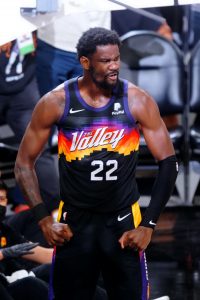After earning Eastern Conference Player of the Week honors based on his performance through the Hornets‘ three games, Miles Bridges hasn’t fallen off at all during his last two contests. The fourth-year forward is averaging 26.2 PPG, 8.0 RPG, and 1.8 SPG with a shooting line of .527/.395/.909 through five games (35.2 MPG).
While it’s very early and Bridges almost certainly won’t maintain that pace, he was nearly a 50/40/90 shooter last season and seems capable of handling an increase in usage without his efficiency taking a major hit. As Zach Lowe of ESPN writes, Bridges is poised to become a “better offensive player – and sooner – than even the Hornets anticipated.” If Charlotte had expected this from the 23-year-old, Lowe adds, the team would’ve made a stronger push to lock him up to a rookie scale extension earlier this month.
Discussing Bridges’ impressive play on his Hoop Collective podcast, ESPN’s Brian Windhorst said that the Hornets’ initial extension offer to Bridges was in the range of $15MM per year.
“When he was in negotiations for his extension, I’m told that the Hornets’ baseline offer was four years, $60MM,” Windhorst said. “… That was Charlotte’s baseline offer. They may have come up, but they were never really close.”
As Windhorst points out, once three-and-D forward Mikal Bridges signed a four-year, $90MM rookie scale extension with the Suns, there was no chance the Hornets were going to be able to lock up their own Bridges for anything in the neighborhood of $60MM. In fact, if the former Michigan State standout can maintain anything close to his current pace, he could match or exceed Mikal’s $90MM on his next deal.
It’s too late for the Hornets to sign Bridges to a rookie scale extension, but the club will be in the driver’s seat when he reaches restricted free agency next summer. There won’t be many teams with the cap room available to make Bridges an aggressive offer, and the Hornets – who have a relatively clean cap sheet going forward – would be able to match any offer sheet he signs. We’ll be keeping a close eye on the young forward this season to see just how high he can boost his value ahead of his looming free agency.
 For example, Suns center
For example, Suns center